BUGONIA (2025)
Two conspiracy-obsessed young men kidnap the high-powered CEO of a major company, convinced that she is an alien intent on destroying planet Earth.
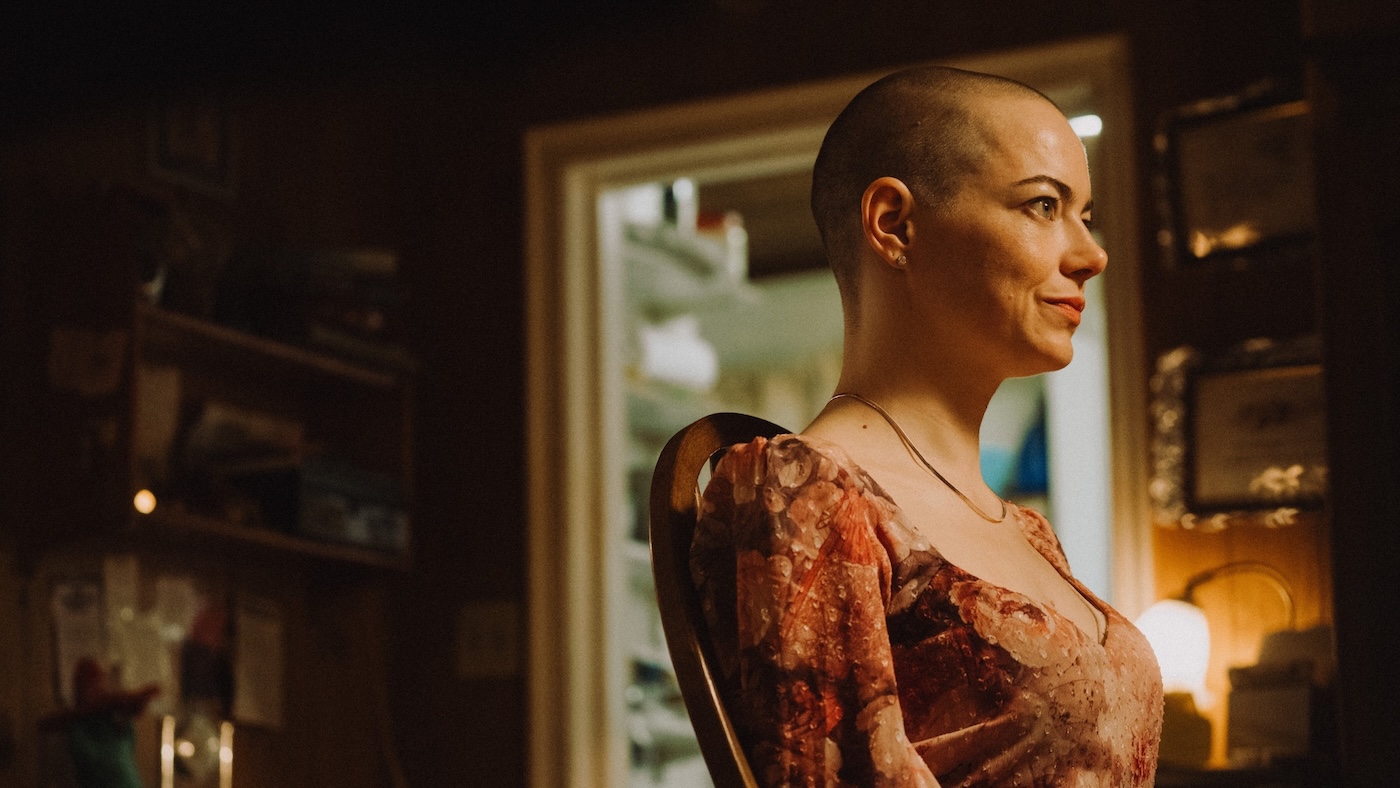
Two conspiracy-obsessed young men kidnap the high-powered CEO of a major company, convinced that she is an alien intent on destroying planet Earth.

While some elements of the screenplay differ, such as narrative specifics and characters, Lanthimos’ new film Bugonia successfully maintains the essence of Jang Joon-hwan’s film Save the Green Planet! (2003), which is crucial when remaking a film or any contribution from the spectrum of artistic mediums. Its essence is comprised of its narrative premise: a conspiracy-crazed individual kidnaps a person of economic and corporate importance because he believes they are an alien sent from the Andromeda galaxy to destroy mankind. Bugonia also retains Save the Green Planet!’s theme of the lifelong socioeconomic inequality that affects everyone outside the upper echelons of society, along with the resulting rage and despair that’s born from it.
Every element that diverges from the spirit of Save the Green Planet!, such as its frenetic pacing and editing, which is far more pronounced than in other South Korean films I’ve encountered, and its bold approach to blending and relentlessly transitioning between different genres, is replaced by Lanthimos’ distinctive filmmaking style. Lanthimos even takes creative liberties by adding subtext with the visual and entomological use of bees, tying it to the title of the film.
I know many think bugonia is the name of a flower; however, if you’re reading this and have the same belief, then you’re unfortunately mistaken. It’s understandable as to why the assumption was made, as I made it myself. I thought the title was misspelled deliberately, in the same manner as Midway when they replaced the ‘c’ with a ‘k’ for their video game Mortal Kombat; I thought Lanthimos was being edgy. No, not in the slightest. The name of the flower is ‘begonia’ with an ‘e.’ The title “Bugonia” comes from an ancient Mediterranean folk practice of the same name based on the belief that, through specific preparation, bees could be born from bovine carcasses.
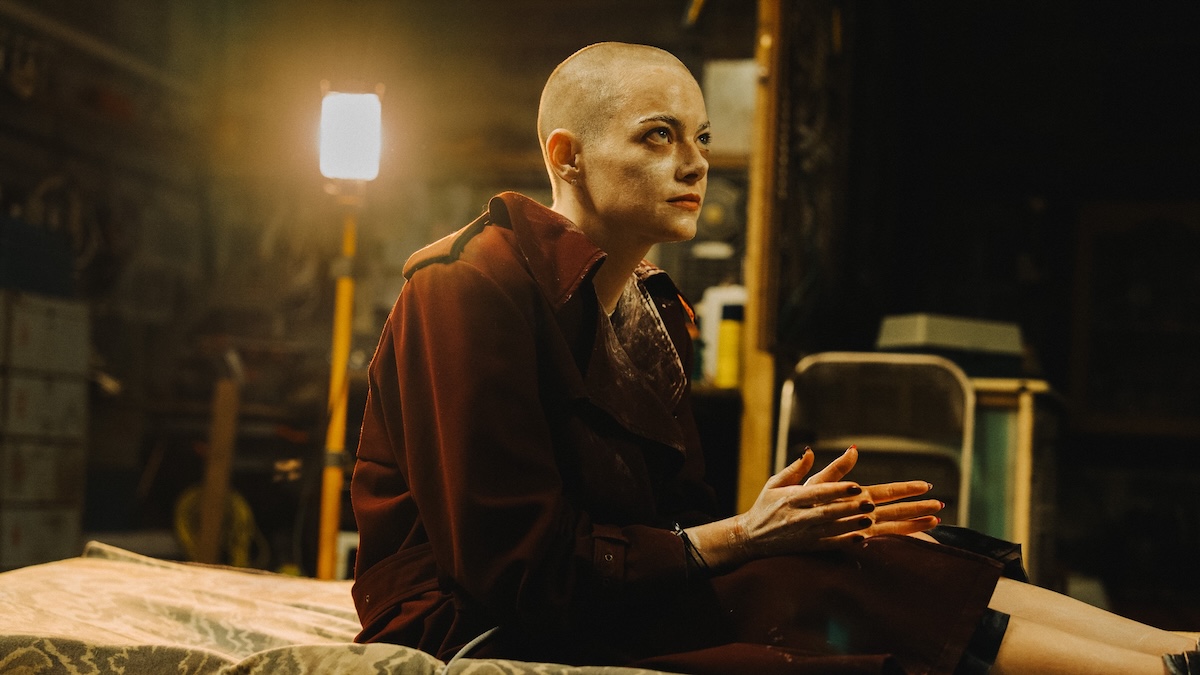
Historians clarify that this belief was likely not an actual practice but rather a poetic device or literary trope, serving as a metaphorical means to assist ancient beekeepers cope with the loss of one or more hives. While I’m certain there’s truth to their proclamations, I’m also confident that ancient civilisations believed this practice to be factual, like many who followed folkloric, mythological, and theological belief systems back in the days of yore and even currently. The idea that bees can be born from deceased beef is ludicrous, especially since there’s entomological data that details how bees reproduce; however, such lunacy matches that of the belief that one of socioeconomic and corporate importance is of eldritch descent.
Lanthimos’ added subtext meshes with Joon-hwan’s socioeconomic theme and narrative premise rather seamlessly, underscoring them, elevating them, and eventually coming full circle with the intent of the ancient Mediterranean folk practice by the film’s closing shot. Though, I must state that both the original and the remake’s themes are used as a means to accent the absurdity of the screenplay rather than existing as a profound social commentary on socioeconomic structure, occupational compliance, and loss of autonomy. I want to be clear on this, as many people who share their thoughts online, whether people like myself or YouTube personalities, are proclaiming this film to be something it’s not, like what many fans did with Ryan Coogler’s recent film Sinners (2025) despite Coogler himself stating that whatever supposed allegory is being tied to the film isn’t what he intended in an interview with NPR.
Bugonia, and in turn Save the Green Planet!, are as much of a social commentary as Stanley Kubrick’s Dr. Strangelove or: How I Learned to Stop Worrying and Love the Bomb (1964) or Bong Joon Ho’s Parasite (2019) in that their elements of commentary accent the absurdity of the screenplay, which exists because of those very same issues. Essentially, they should be viewed with the following perspective: here is a fictional story born from issues that reflect ones from our own world, and while they’re born from them, the film isn’t specifically about their profundity; rather, it’s something compelling whilst truth resides in the background. I digress.
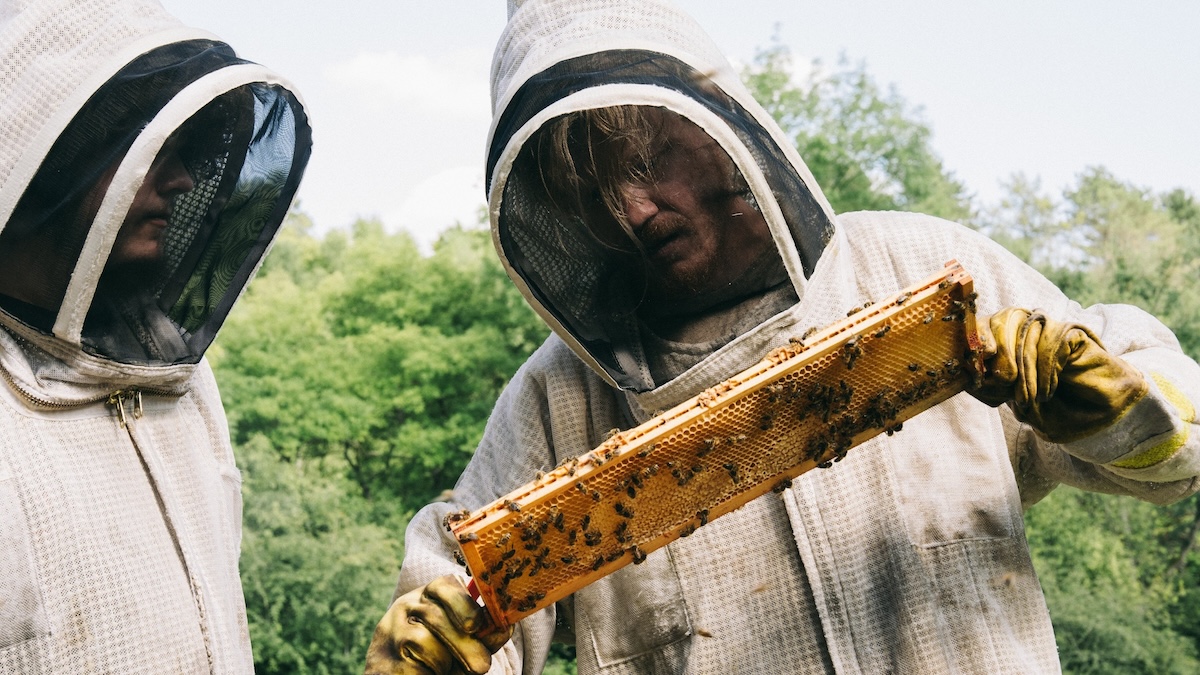
While I enjoyed Save the Green Planet!, it was a highly exhausting film to watch due to its style being too taxing for me to truly appreciate all that it did. I’m not a fan of high-energy avant-garde films, like City of God (2002), for example. In Bugonia, Lanthimos’ style removes all that was draining from the original experience and adds in a quiet yet unsettling intensity that slowly inserts itself under your skin, like needles being inserted into one’s body for inoculation. It scraped away at the top layer of meat, causing me to squirm at the apex of its dread-inducing escalation. I haven’t been this physically impacted by a Lanthimos film since I watched Dogtooth (2009).
The performances in Bugonia are top-notch; every actor is firing on all cylinders, and while Emma Stone will undoubtedly get praise for her role as Michelle Fuller, it’s Jesse Plemons and Aidan Delbis who I think steal the show here. Lanthimos utilised Plemons in a manner that complements his strengths and proficiency as an actor; he is really good at playing roles predicated on instability. His cadence, body language, and facial expressions—everything Plemons does is fitting of this flavour, and it feels so natural, unlike some actors who oversell psychopathy. I’ll even go as far as to say it’s award-worthy.
Then there’s Aidan Delbis’ performance, which is incredible. He’s a newly emerging 19-year-old actor with autism spectrum disorder, playing the role of Don—Teddy’s (Jesse Plemons) cousin—who has the same condition. Delbis’ performance is impeccable, marvellous, and another adjective I can’t think of. It’s so proficient that the barrier between the silver screen and reality dissolves. I felt as though I was watching a real person with ASD reacting to someone’s emotional volatility, mental instability, and the absurdity occurring within the confines of their home, post-abduction of a well-renowned CEO. Delbis melts into the role.
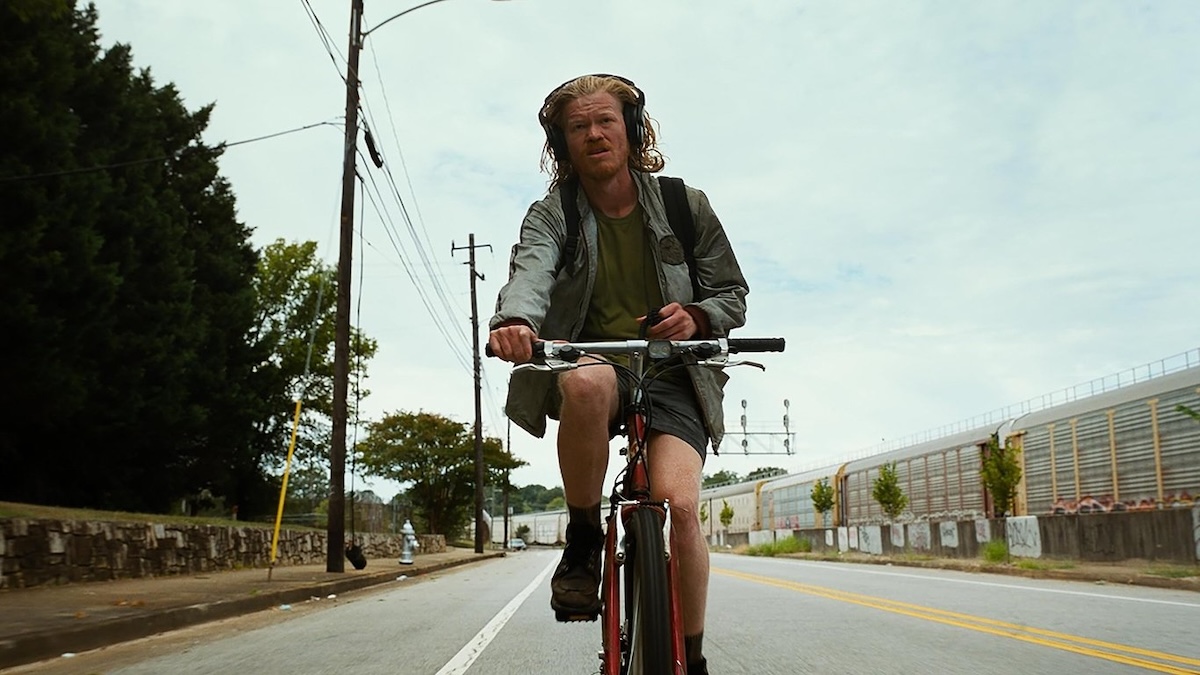
Despite the actions that are carried out by Teddy, and I mention him solely because Don lacks agency due to his conditioning, I can’t help but feel sympathetic towards Teddy as a character. I’m not one who partakes in conspiracy theories, though the one about Kubrick being killed after his test screening of Eyes Wide Shut (1999) is always fun to fuss around with. I’m aware of the attitude of mind that conspiracy-centric individuals have. This may be anecdotal, and it just so happens to align with Teddy’s background in the film, but of the people I’ve met in my life that indulge in conspiracies, from nano-machines within the COVID-19 vaccine to biblical giants actually existing and residing within the crust of the Earth until further notice, they all have suffered a profoundly troubled past.
They’re left wounded and desperate for answers to make sense of the suffering they’ve endured and all that exists in the world. Instead of leaning in the direction of philosophy to understand the human condition (thank you, Camus) or psychology to understand themselves and how to heal from their past, they turn to the likes of Alex Jones and others who perpetuate ideas of viral infection rates spiking with the release of 5G or the Earth’s true appearance being flat. It’s sad.
As a result, I found Bugonia to be less humorous than its marketing suggested. Sure, there are moments of hilarity in the film, but given the tense, dense, and dreadful nature of the entire film, I found myself uncomfortably chuckling at most moments. One or two moments genuinely made me laugh, primarily due to Officer Casey (Stavros Halkias) desperately attempting to atone for the mistakes he made while babysitting Teddy. I felt like this needed to be said, as there are many films that are marketed as X and Y, or just X, when they are really just Y, like Christian Sparkes’ film The King Tide (2023) or Mary Bronstein’s film If I Had Legs I’d Kick You (2025).

The cinematography is breathtaking as always. Lanthimos once again utilises Robbie Ryan’s proficiency as a cinematographer to create varied compositions of the utmost balance, most notably his liminal shots that utilise the rule of thirds and triangular compositions. There are also some creative compositions that utilise a minimal amount of space to house a conversation, whether in part or in whole, while the rest of the elements of the shot block and guide the eye to that minimal space. Most importantly, Ryan’s cinematography doesn’t make one aware of the camera; everything feels organic, and that’s lost nowadays in many cinematic releases.
Jerskin Fendrix returns as a composer for Lanthimos’ latest creation. His past two contributions—Poor Things (2023) and Kinds of Kindness (2024)—were well crafted and fitting of the cinematic ambience and tonality of both projects; the same applies to Bugonia. How I can describe the score for this film is tense, dense, and anxiety inducing, perfectly pairing well with the escalation of Will Tracy’s screenplay, yet Fendrix didn’t know too much information about the film.
Supposedly, Lanthimos gave him some loose information about Bugonia, and he created a score based on that alone. As to what information he was given is currently unknown, but regardless of the “what,” this practice reminds me of how Konami’s Team Silent composed music for the Silent Hill video game series—illustrator Masahiro Ito would give music composer Akira Yamaoka some images of the environment in the game, and he would create music based on what he was allowed to see.
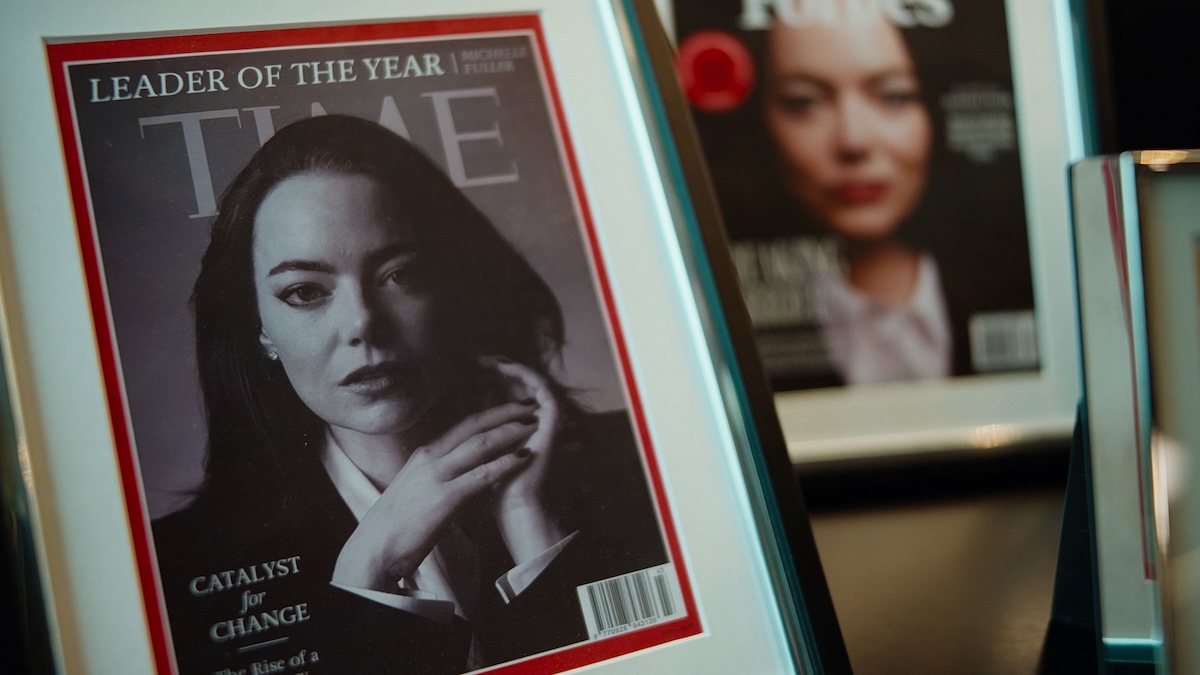
The best thing about Bugonia’s score is that Lanthimos knows exactly when to utilise it and when to be silent, which most of the film is. This gives me the impression that Lanthimos is confidently comfortable with silence, and that goes for the rest of his filmography as well. In a world where films are overly marinated in their musical scores, it’s always a treat seeing a filmmaker who doesn’t use sound as a crutch to immerse the audience—it’s the contents of the screenplay that should do the legwork while the score accents its pivotal moments.
Bugonia is yet another marvellous film by Lanthimos—no surprise. Though one is either into his style of filmmaking or not, and although I’m obviously a fan, I feel as though Bugonia improves on Joon-hwan’s Save the Green Planet! in every possible way—it’s a much more compelling experience, especially since I wasn’t drained from its presentation by the credits. Bugonia didn’t affect me in the same way as Dogtooth, nor entice me nearly as much as Alps (2011) or The Killing of a Sacred Deer (2017), nor make me laugh as much as Poor Things, but it’s up there for me. This Greek can cook! I’m looking forward to the next thing he prepares.
Yia mas. (Γεια μας)
IRELAND • UK • CANADA • SOUTH KOREA • USA | 2025 | 118 MINUTES | 1.50:1 | COLOUR | ENGLISH


director: Yorgos Lanthimos.
writer: Will Tracy (based on the film ‘Save the Green Planet!’ by Jang Joon-hwan.)
starring: Emma Stone, Jesse Plemons, Aidan Delbis, Stavros Halkias & Alicia Silverstone.
